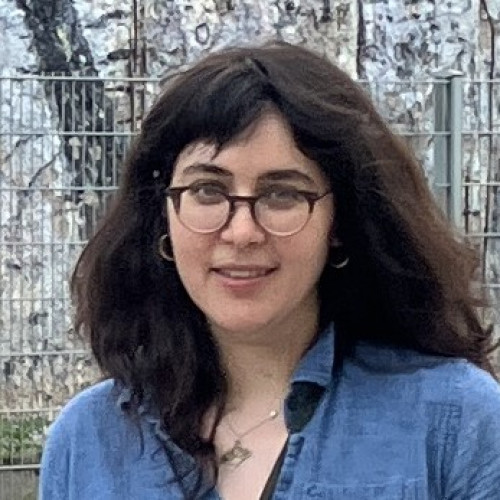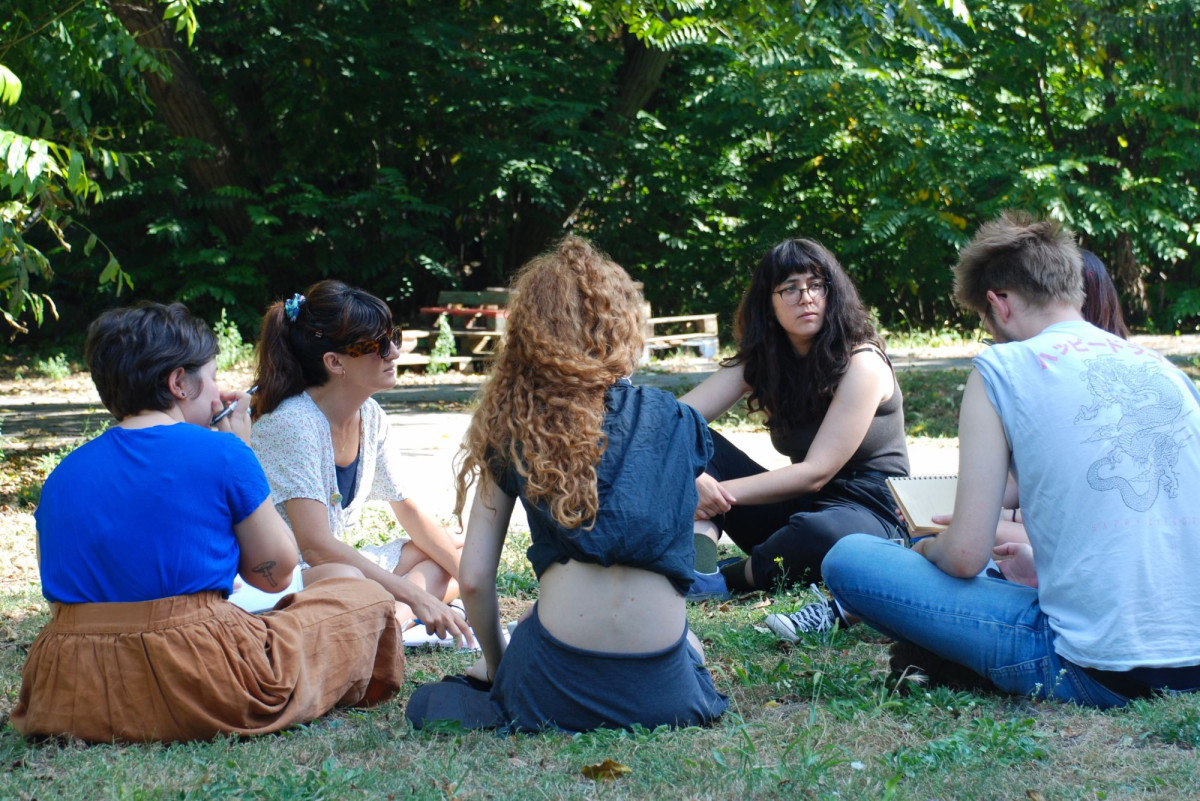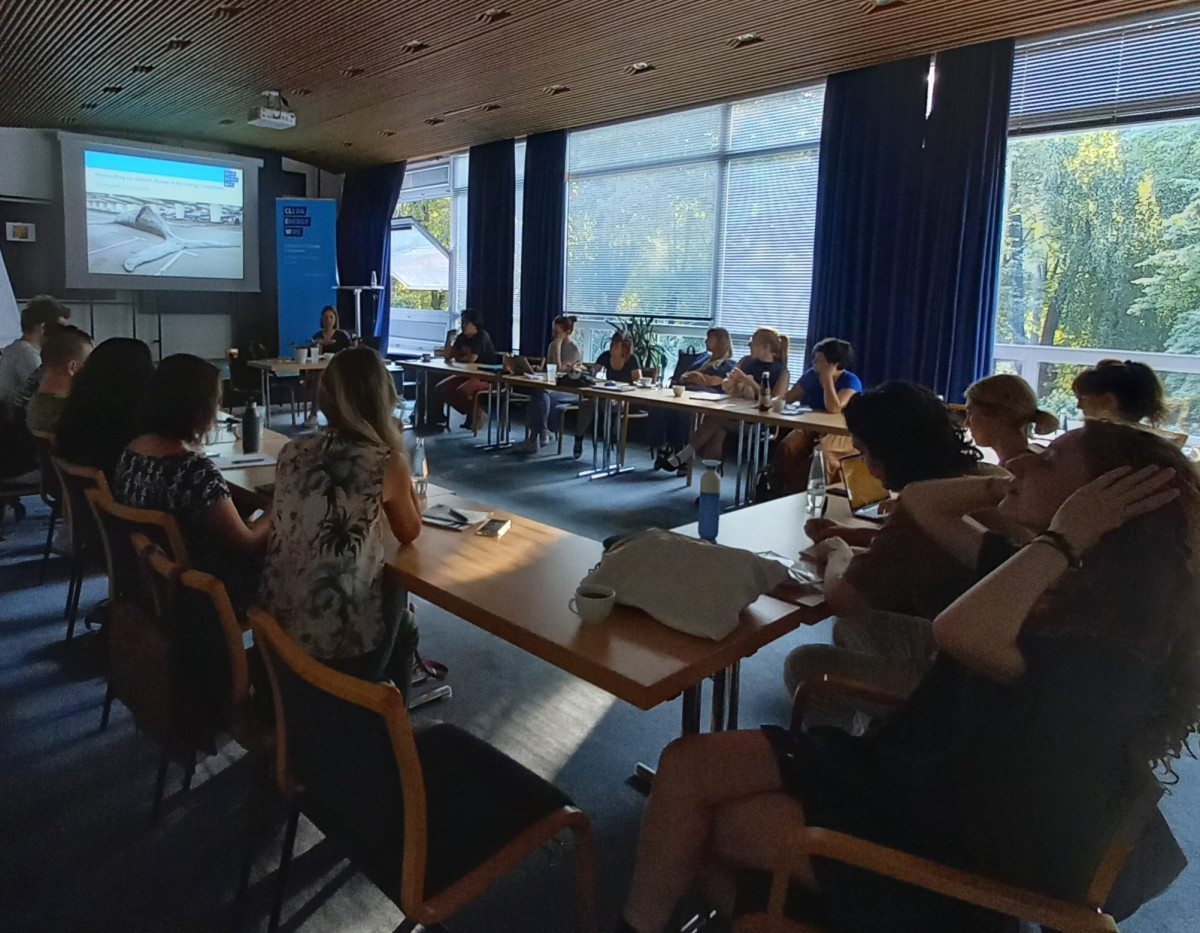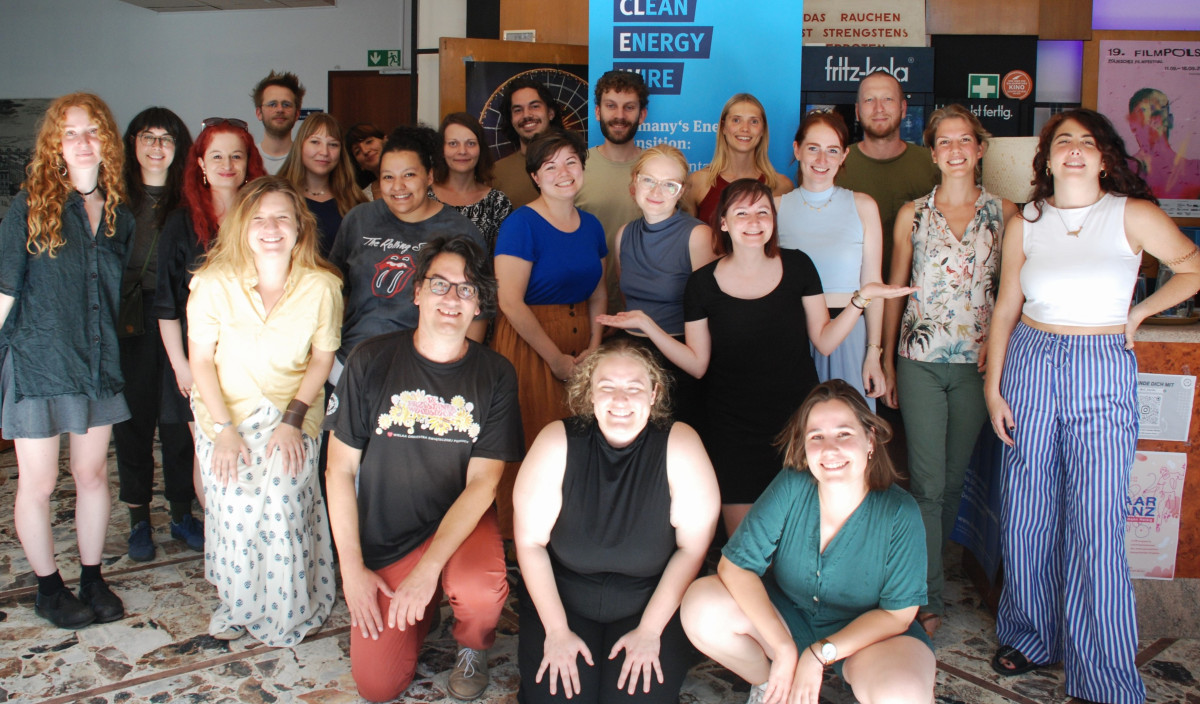How CLEW's Summer Academy in climate journalism fundamentally changed my thinking about our planet's future
It’s been four days now since I boarded a Deutsche Bahn train in Berlin back to the UK, slowly wending my way home from attending the Clean Energy Wire Summer Academy on climate journalism and energy transition. It was a packed week, full of intensive workshops led by climate experts as well as ample bonding time with a fascinating mix of climate journalists from across Europe.
I can already tell, with a few nights’ worth of hindsight, that the experience has fundamentally shifted the way I think about, and want to write about, the future of our planet.
"What I wasn’t expecting was how much the week would restore my faith in humanity’s capacity to rapidly construct a green energy system built for everyone to thrive."
I’ve previously reported on local media greenwashing, climate scientist activism, and environmental issues in the North of England where I live, but have yet to report on renewable energy transitions. I came to CLEW hoping to change that.
What I wasn’t expecting was how much the week would restore my faith in humanity’s capacity to rapidly construct a green energy system built for everyone to thrive.
The academy covered a lot of ground. Climate policy researchers, seasoned environmental journalists, and climate activists came to talk to us about just transition, COP reporting, greenwashing investigations, covering activist movements, climate communications, and renewables, among many other topics.
It’s one thing to think about climate change in abstract, and an entirely different thing to know that powering the world would only require solar panels covering land the size of Texas, or that batteries will soon be so efficient that we could soon completely rely on stored renewable power when the wind doesn’t blow and the sun isn’t shining for all but a few industries.
I’ve often heard, “We already have all the solutions we need to solve climate change in hand,” but I hadn’t ever seen an affordable solar cell literally in someone’s hand before. Now I have, along with the entire photovoltaic production process, at the factory of Oxford Photovoltaics, a company pioneering a new type of more efficient, more affordable solar cell.
It was a lot, in a good way. The workshops were a whirlwind of information that has left me with more questions than answers. How can global north countries be held accountable for climate finance to the global south? What evidence do we have of COP negotiations influencing businesses and markets? How much is green hydrogen hype, and how much is it needed for industries like cement and steel that rely on the heat generated by combustion?
I learned as much from my peers as I did from the workshops. The group of journalists CLEW brought to Berlin work in many different European countries, including Hungary, Italy, Slovakia, Romania, Belgium, Portugal, the Netherlands, the Czech Republic, Austria, Germany, the UK, and France. Several of originally come from outside Europe, including Brazil, the US (like me), and India. We all fundamentally care about the same thing – doing climate journalism on the energy transition right.
When do you ever get a chance to ask a room full of journalists covering climate from so many countries to compare their diverse experiences with climate politics, nuclear power, or greenwashing? It was a rare gift. Many of us, me included, have begun collaborating on cross-border investigations, and are now working on grant applications to fund our work.
We have a herculean task ahead of us. In 2020, David Attenborough joined Instagram with a warning: “Saving our planet is now a communications challenge.”* Given everything I learned last week—all the evidence that the renewable transition is, from a technical perspective, well within possibility—I can’t help but suspect he is right.
I still have much more research to do if I am going to report on green transitions with expertise, but I’ve come home from the CLEW summer academy at least knowing which questions I want to pursue, and where I might go to start piecing them apart.
For that, I have come home from Berlin with deep gratitude to Clean Energy Wire, and a sharp sense that I know where my head needs to go to become the kind of climate reporter I’d like to be.
*Thanks to Lea Grosse of Klimafakten for sharing this quote in her climate communications workshop on the first day of the academy.





